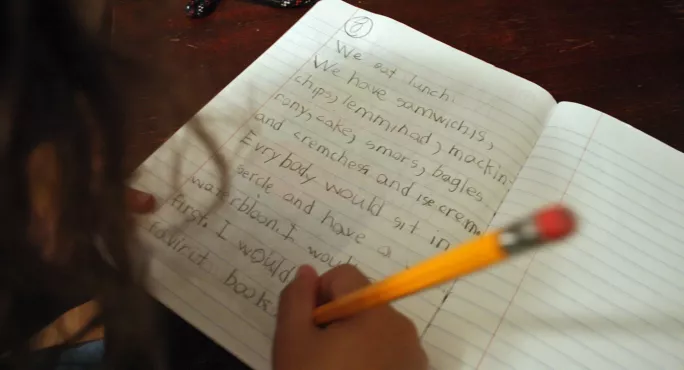On Thursday, the government, spearheaded by the education secretary Justine Greening, released their plan for social mobility, Unlocking Potential, Fulfilling Talent. In contrast to some of her more radical forerunners, Greening is clearly intent on trying to ‘make do and mend’ a beleaguered education system, while constructing a make-shift ladder of social mobility for disadvantaged children.
She is starting at the beginning: early years education and early language to be exact.
Now, rightful criticisms have been shot at the DfE given their stripping away of valued Sure Start centres, community health services, local libraries, and much more, but Greening’s plan should be lauded for starting in the right place and for proposing some sane plans in a Brexit blunderland.
Her ‘ambition 1’: “Close the ‘word gap’ in early years”.
Although poverty and disadvantage is infinitely more complex than simply the limits of our language, the ‘word gap’ that divides child from disadvantaged and advantaged backgrounds can be known, understood and acted upon. The sage philosophers were right - “the limits of our language are the limits of our world”. We have lots of depressing evidence that the vocabulary of a five year old correlates with factors like wealth, health and well-being in later life.
And so, preparing children for communicating successfully at school is a vital start - a first piece in the jigsaw.
But it will not prove enough to be a definitive driver of social mobility.
Children aren’t ‘fixed at five’
Although people can agree about the crucial foundations of early years support and early language, there have also been criticisms of a so called ‘vaccination model’. Give ‘em some early years boosts and they’ll be ‘fixed at five’.
It makes for good policy, but the impact washes away. We know that the vital ‘word gap’ that Greening highlights is an integral part of a life-long process and we need to tend to it at every stage.
US cognitive scientist, professor Daniel Willingham, in his recent book The Reading Mind, highlights how many disadvantaged students make good progress with reading up until about year 5, but then they struggle when they face more challenging reading. He argues they simply don’t have the background knowledge, nor the rich cultural experiences, to bolster their language, particularly when faced with the more formal, challenging reading in school.
Research from the Sutton Trust has shown that high-achieving children from disadvantaged backgrounds in year 6 were performing very well at 11, but they were then still being outperformed by their more advantaged peers at GCSE, A level and in accessing university education.
The research of Willingham and the Sutton Trust reveals that vocabulary development, equitable social opportunities and high-quality schooling all need our investment of time, far beyond the age of five.
Of course, time doesn’t come for free. It needs to be twinned with investment. We can’t keep on closing libraries and then expecting ‘word gaps’ to magically close with the opening of a policy pamphlet. If the teaching profession shrinks any further, don’t expect the expertise needed to work on ‘word gaps’ to be available for all.
Whole-school approach
For teachers in schools, not just early years practitioners, we can be supported with high-quality training on vocabulary instruction, reading comprehension, and much more. We know that the challenge of the new GCSEs at secondary school is inexorably twinned with the ‘word gap’ that starts so early. The fundamental “building blocks of early literacy”, described by Greening, then need a veritable castle of support for primary and secondary schools if the hopes for social mobility are to be realised beyond a few rare success stories.
Children aren’t ‘fixed at five’ and ‘word gaps’ can just as easily open as close. Greening is starting to select some of the right pieces of the jigsaw, but so much more is needed to complete the picture and to close the vocabulary gap.
Alex Quigley is the author of the upcoming ‘Closing the Vocabulary Gap’ and he blogs at www.theconfidentteacher.com. His twitter handle is @huntingenglish




